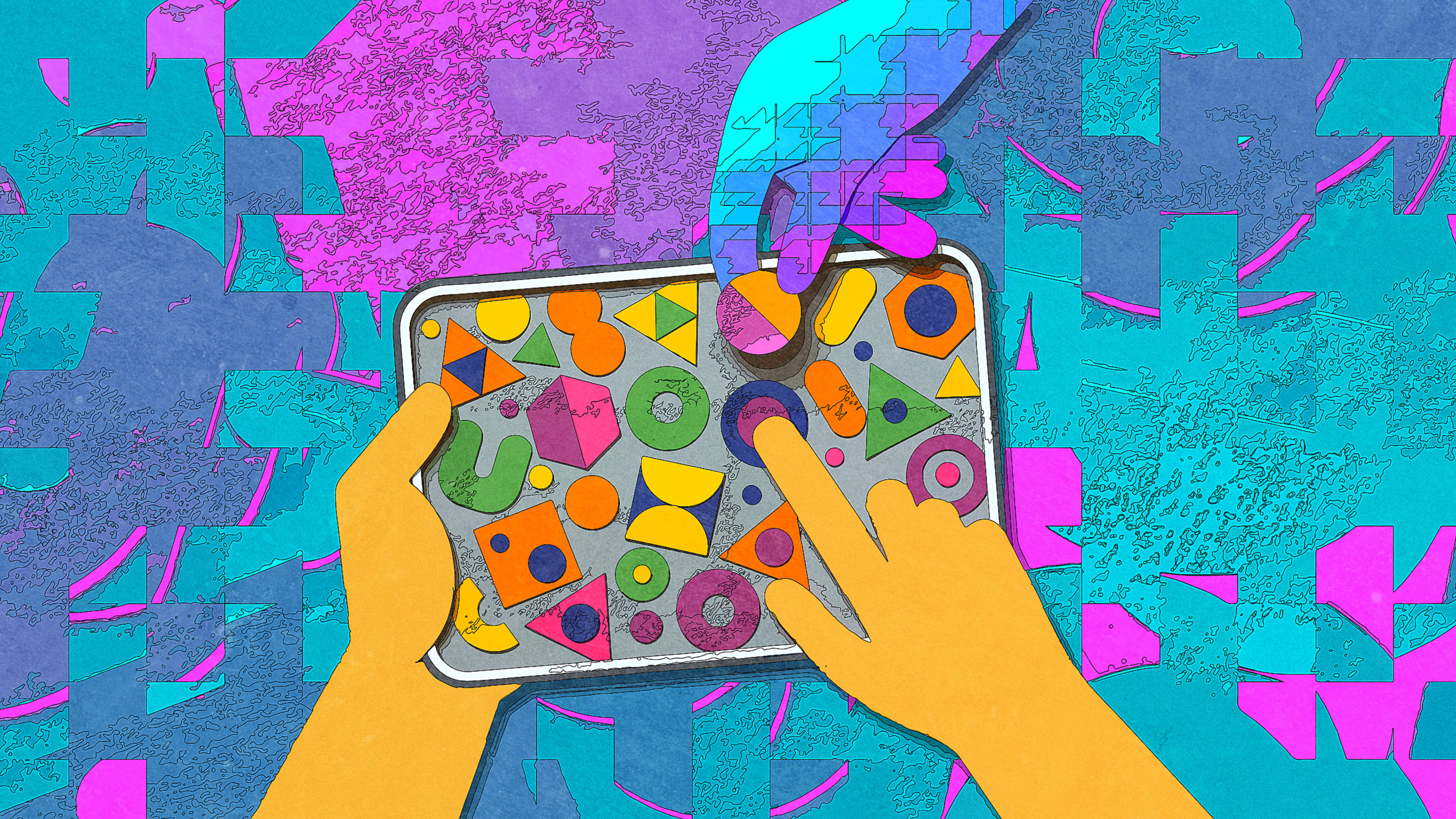I was recently chatting about emerging technology with a creative director at one of my favorite New York agencies, and his approach to artificial intelligence took me by surprise. While there is a lot of speculation about whether AI is a friend or a foe right now, he was steadfast in his belief that AI is firmly in the friend category.
For him, AI can serve as a valuable colleague—a creative partner, so to speak—that can generate ideas, provide fodder for creative riffing, and ultimately bolster team output. To me, that creative director’s mindset strikes the right balance, as hot takes on the topic range dramatically from “AI is changing everything!” to “don’t believe the hype!”
If history is any judge, reality will shake out somewhere in the middle. In its current state, AI resembles many of the workplace advancements we’ve seen in the past: If applied appropriately, it can unlock new magic in the creative process, akin to how a thesaurus helps writers expand their vocabulary or Pantone enables designers to discover new colors.
AI has the potential to become a “digital teammate” that can encourage design literacy across the workplace. This technology is poised to expand everyone’s creative toolkit and will likely become a fixture in the modern workplace, as the way we communicate becomes increasingly reliant on visuals.
Design literacy is a necessity
I’m the CMO at a fast-growing design platform, but I previously served my company as a head of communications, product, and people, respectively. Because of my diverse leadership experience, I know how design skills can help every kind of knowledge worker express themselves more dynamically and efficiently. I’ve seen a shift in how workplaces value design—namely, it’s no longer only the purview of designers.
At Canva, we provide design training to all of our new employees—no matter their function—during the onboarding process. I’ve seen colleagues in recent years start out shy about trying to design before blossoming into full-fledged marketing creatives.
Yet, for many people, the design learning curve feels steep, if not insurmountable. Design, as a practice, has been professionalized over the years, but increasingly, design literacy is non-negotiable in many workplaces—even for those who don’t consider themselves designers.
Per our new Visual Economy Report, which surveyed 1,600 global business leaders in December, design literacy is now an expectation of many employees. The study found that nearly two-thirds of employers (63%) provide design training to those not in design roles, and more than half (61%) say that employees in non-design roles are expected to have extensive design competence.
In other words, this is the new competitive frontier at work. Design literacy is a necessity for marketers, agency creatives, content producers, and anyone who needs to create powerful visuals at work in order to succeed. To me, design literacy is about having the confidence to create beautifully designed outputs that drive the desired business impact. It’s akin to language literacy, which is not only comprehending a language, but using it with complete confidence and in a powerful way to achieve an outcome.
But many people lack confidence, which can result in a mental block that’s hard to get past. While there are lots of ways to get over this hump, the emergence of AI tools is making high-quality design work more accessible than ever before. AI not only inspires ideas, but it also instills the self-belief they need to take an idea from inception to completion.
AI tools improve efficiency
According to our study, 90% of business leaders agree visual communication methods—such as digital whiteboards, infographics, and video—increase efficiency, 89% say the methods enhance collaboration, and 85% say they carry more authority than other methods of communication. Also, 89% agreed that visual communication tools result in stronger business returns. According to a study by Dell, 80% of Gen Z members aspire to work with cutting-edge technology. Our study also found that 93% of Gen Z (a much higher percentage compared with other groups) believe visual communication helps them articulate ideas more powerfully.
AI-infused tools are breathing new life into creativity and productivity at a greater scale. Nestlé, for instance, is using AI to help its 15,000 marketers—across 2,000 brands in 200 territories as well as agency partners—develop creative assets for advertising and marketing campaigns that meet brand requirements before they can go live.
Marketing teams, specifically, have struggled to meet the demand that comes with creating astronomical amounts of social content, including large volumes of media posts, emails, digital ads, etc. They’ve also had to do all of this faster and with fewer resources than ever before. This has led to an over-reliance on their incredibly burdened brand teams and agency partners which, in the end, is a losing battle.
If brands, agencies, and other creative-leaning firms sleep on AI innovation, they risk becoming relics of the past. They risk losing their footing in their industry but also will lose out on up-and-coming talent that’s looking for new and innovative ways of working.
AI is exactly the kind of game-changing technology that can accelerate how organizations can work smarter, not harder. It has the potential to save time and resources and drive new levels of creativity and output unlike any other time before. When used for good, AI has the potential to revolutionize the marketing universe, for the better.
Zach Kitschke is the CMO at Canva.
Recognize your brand’s excellence by applying to this year’s Brands That Matter Awards before the early-rate deadline, May 3.
